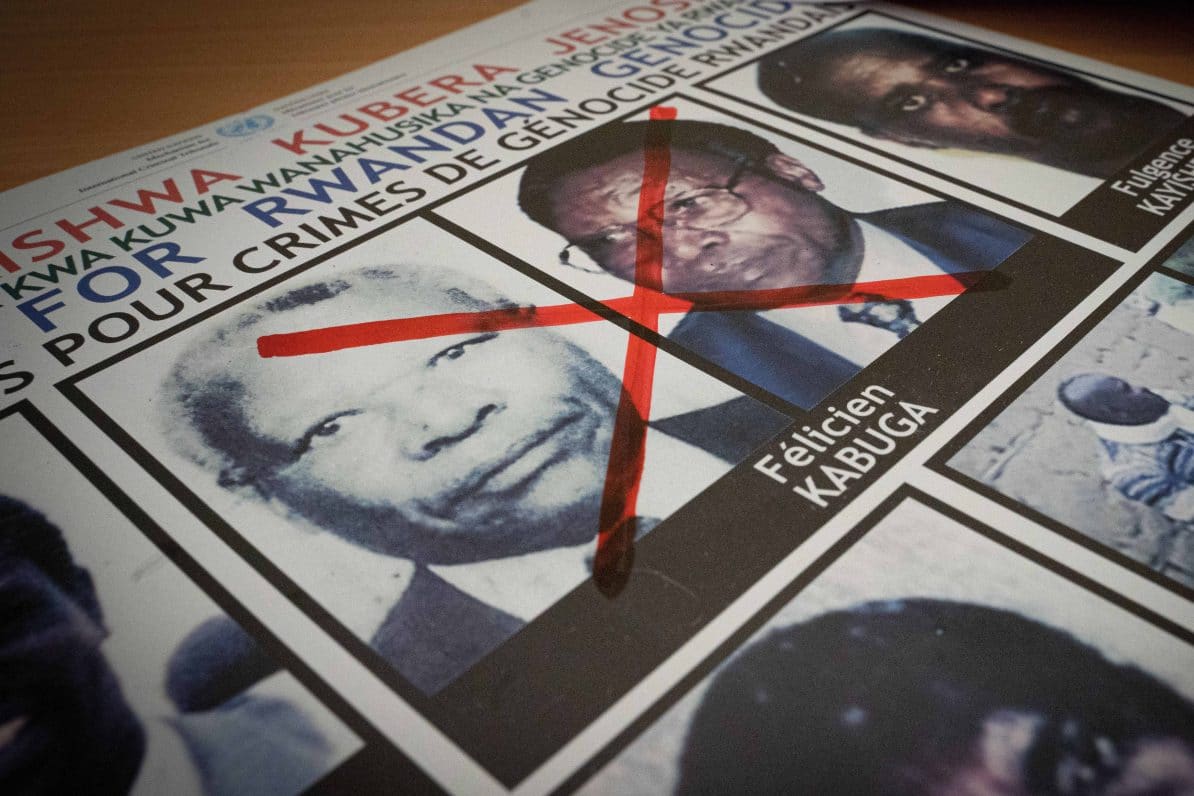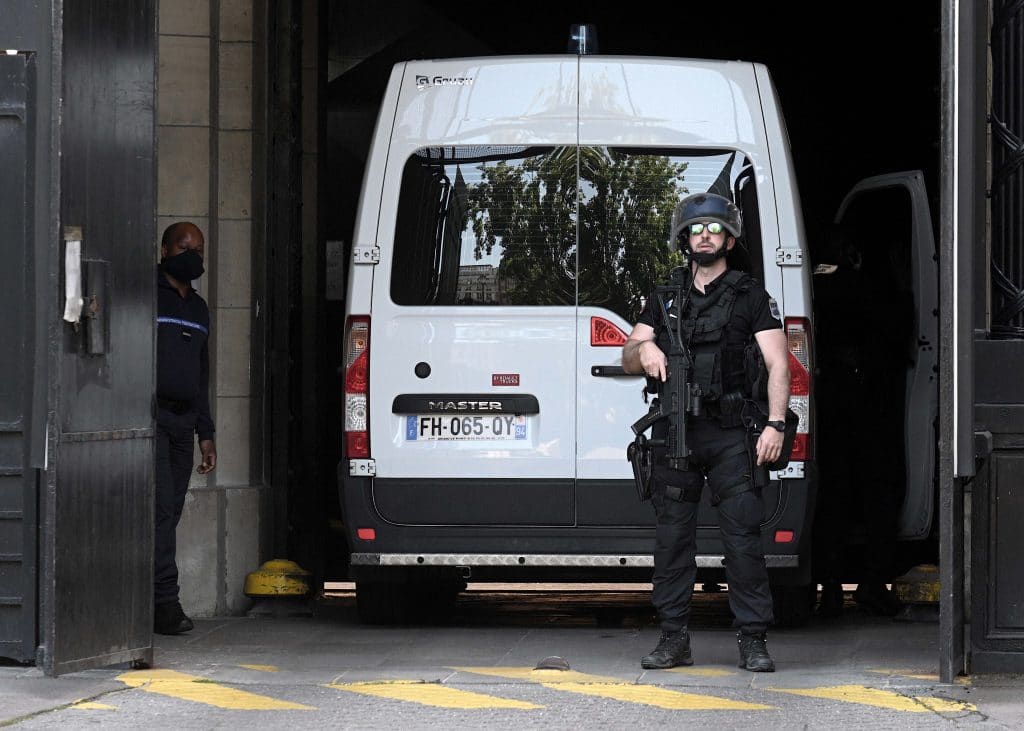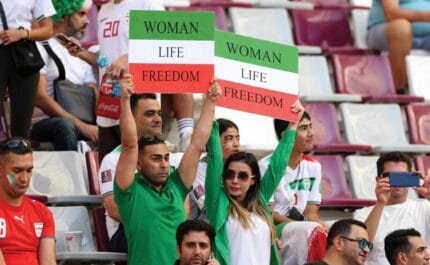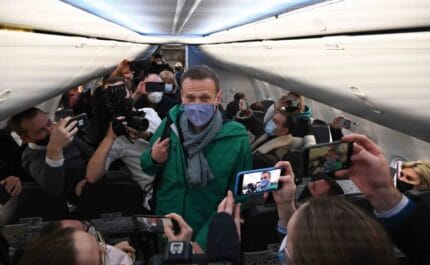Moment that mattered: Félicien Kabuga is arrested in France
In May 2020 we spoke to genocide survivor and founder of the Ishami Foundation, Eric Eugène Murangwa, about the arrest of the world's most wanted man

The face of Félicien Kabuga on a wanted poster at the Genocide Fugitive Tracking Unit office in Kigali, Rwanda, on 19th May 2020. Photo: Simon Wohlfahrt / AFP via Getty Images
16th May 2020 (Taken from: #39)
One of the world’s most wanted men had apparently been hiding in plain sight. Félicien Kabuga had been a fugitive for 23 years, accused of being the main financier of the 1994 Rwandan genocide, in which around 800,000 members of the minority Tutsi community were murdered by ethnic Hutu extremists over a period of 100 days. Yet despite the US offering a $5 million reward for information leading to Kabuga’s arrest, he had always evaded capture – until French police burst into an apartment in the Parisian suburb of Asnières-sur-Seine on 16th May and emerged with him in tow.
“My initial reactions were excitement, shock and surprise,” Eric Eugène Murangwa tells me from the Rwandan capital of Kigali. “Excitement because the man who built the genocide machine that devastated my people, my country, my family, was finally arrested. Shock because it had been 26 years since the genocide and we had given up hope, and surprise because it happened in Paris of all places. I had many questions. Was he given up by those who have helped him to hide all these years? And, if so, why? The fact he’s been able to evade justice for such a long time with so much money on his head shows how well supported he was.”
The genocide in which Kabuga is implicated began on 7th April 1994. On 6th April growing tensions had come to a head with the death of Rwanda’s then-president Juvénal Habyarimana, a member of the Hutu ethnic group. When the plane carrying him was shot down, Hutu extremists blamed Tutsi rebel group the Rwandan Patriotic Front (RPF) – an accusation the RPF denied – and sought bloody retribution against all Tutsis.
Kabuga, a Hutu businessman and media mogul who made his fortune selling tea and coffee, is accused of spreading anti-Tutsi propaganda through his radio station, importing weapons and paying the wages of the Hutu militias that carried out the massacres. He was indicted in 1997 on charges of genocide and crimes against humanity by the UN’s International Criminal Tribunal for Rwanda (ICTR), which finished its work in 2015. The 84-year-old denies the charges.
At the time of the genocide Murangwa was a young Tutsi goalkeeper at the Rayon Sports football club in Rwanda. When asked if he remembers hearing Kabuga-owned radio station Radio Télévision Libre des Mille Collines (RTLM) describing Tutsis as “cockroaches” deserving of “extermination”, he nods his head. “Oh yes, I remember all the terrible stories that were broadcast on RTLM,” he says. “They read out names and addresses of people they accused of being enemies of the nation and encouraged people to go and take them out.”
Rayon Sports is one of Rwanda’s biggest football clubs and in the febrile pre-genocide climate of early 1994 its team of both Tutsi and Hutu players was enjoying great success. It also gave Murangwa an experience that continues to inform his work today. A month before the mass killings began, Rayon Sports played Sudan’s Al-Hilal in the African Cup Winners’ Cup. “It was already a very hostile period,” he says. “A number of Tutsi communities had been attacked and chased out of their areas and some people had been killed.” But the match, which Rayon Sports won 4-1, brought people together. “By then Rwandan society had been broken into many different groups and political parties. We lived in the same country but were no longer together in any sense; we couldn’t go to the same restaurants, the same pubs. The only thing that could connect these people was this football club. It was a sign of hope, that despite all the differences we could still be one people, one nation. It didn’t last long, but after the genocide against the Tutsi, sport, and football in particular, played a key part in the rebuilding process.”
Over the 100 days of slaughter, football saved Murangwa’s life on more than one occasion. “On the first day, these soldiers descended on my neighbourhood and went house to house, taking out those they deemed to be enemies of the state. Mainly Tutsis, but also moderate Hutus. About six soldiers came into my flat, aggressively throwing things around, shouting and kicking, making accusations that we Tutsis had killed the president.” Fortunately one of the soldiers recognised Murangwa. “You could see his face change. He was no longer the threatening individual I had seen moments earlier. He asked his colleagues to step out of the house and we sat down and had a long chat. All he wanted to talk about was the game against Al-Hilal. ‘Do you remember this tackle? Do you remember making this save?’ It was weird.”
Murangwa left his apartment the following day and took shelter with his Hutu teammates, whom he says saved his life. “They went out of their way to help me,” he says. “They provided crucial information, in some cases intervening when a militia group came to take me away.” When it eventually became too risky to stay with his fellow footballers, Murangwa found the most unlikely of protectors.
Zuzu was one of Rayon Sports’s biggest fans. He was also a notorious, brutal Hutu militia leader who was later imprisoned for mass murder. “Incredibly he agreed to keep me in his house,” says Murangwa. “I remember the first thing he said when he saw me: ‘I’m going to protect you and look after you, and when all this madness ends we’ll go back to playing football.’” By day Zuzu, real name Jean-Marie Vianney Mudahinyuka, was murdering and raping Tutsis, but at night he went home to talk football with his Tutsi guest. After a couple of weeks, Zuzu told Murangwa that he would be leaving town and that he must find
a new place to shelter. Zuzu drove him to the Kigali offices of the International Red Cross – the soldiers at the many roadblocks recognising the feared militia leader and waving them straight through – but Murangwa couldn’t get in. He eventually gained passage to the Hôtel des Mille Collines, where an estimated 1,200 people found shelter, and which later became the subject of an acclaimed Hollywood movie, Hotel Rwanda.
After the genocide, in which Murangwa lost many friends and 35 relatives, he tried to revive his football team, but too many players and officials had fled or been killed. He fled himself in 1996 after discovering his name on a list of insurgents’ targets; in Paris on a stopover with the Rwandan national team he decided not to get on the flight home. He moved to Belgium and then the UK, where he set up the charity Football for Hope, Peace and Unity, which later became part of the Ishami Foundation, which runs sports programmes for kids and promotes genocide awareness in the UK and Rwanda.
It’s crucial to give us survivors a belief that justice has been done
On 25th May Murangwa added his foundation’s name to a petition started by an umbrella organisation of survivors’ groups which called for Kabuga to be tried in Rwanda. “It’s every survivor’s wish as far as I can tell,” he says. The French authorities are reportedly planning to hand him over to the UN’s International Residual Mechanism for Criminal Tribunals (IRMCT), which took over from the ICTR, meaning the trial will most likely take place at the organisation’s base in Arusha, Tanzania. “Who is this justice for?” says Murangwa when asked why he objects to a trial outside Rwanda. “His victims are us Rwandans. If we’re not going to be a part of that process of giving justice to ourselves, can it really be justice? It’s crucial to give us survivors a belief that justice has been done.” There are, however, ongoing concerns in the international community that Rwanda’s judicial system is too strongly aligned to the government of President Paul Kagame, a former commander of the RPF, for Kabuga to get a fair trial.
On 27th August, another major figure from 1994 was apprehended by the authorities – this time in Rwanda itself, and this time a man with an entirely different reputation. Paul Rusesabagina was the hero of Hotel Rwanda, who, according to the film, in which he was portrayed by Don Cheadle, used his position as a manager at the Hôtel des Mille Collines to save the lives of hundreds of Tutsis. He was, it seemed, the genocide’s Oskar Schindler.

A prison van transports Félicien Kabuga to a Paris court on 19th May 2020. Photo: Philippe Lopez / AFP via Getty Images
Kagame’s government, however, call him an opportunist and manufactured hero who exaggerated his role in 1994; moreover, they claim he is a terrorist whose opposition party, the Rwandan Movement for Democratic Change, has an armed wing, the National Liberation Forces, that has launched deadly attacks inside Rwanda. Murangwa backs the government’s narrative. “I stayed there [Hôtel des Mille Collines] for three weeks and saw him twice,” he says. “If he’s really the man the film says was the saviour of 1,268 people, surely I would have seen him more than that. I never heard anyone discuss [how he saved people] when I was at the hotel or afterwards.”
Human Rights Watch say that Rusesabagina, one of the most prominent opposition figures to Kagame in the West, was illegally apprehended and that there is a “well-documented pattern of repression of Rwandan government critics”.
The competing narratives surrounding the Rusesabagina arrest point to lingering divisions among Rwandans, both at home and abroad. Inspired by his old teammates who saved his life, meanwhile, Murangwa continues to promote sport as a means to bring people together and reconcile differences.
“What I do today is the legacy of my teammates,” he says. “I wanted to use the lesson of my teammates to help rebuild a nation shattered by people like Félicien Kabuga.”
Slow Journalism in your inbox, plus infographics, offers and more: sign up for the free DG newsletter. Sign me up
Thanks for signing up.








